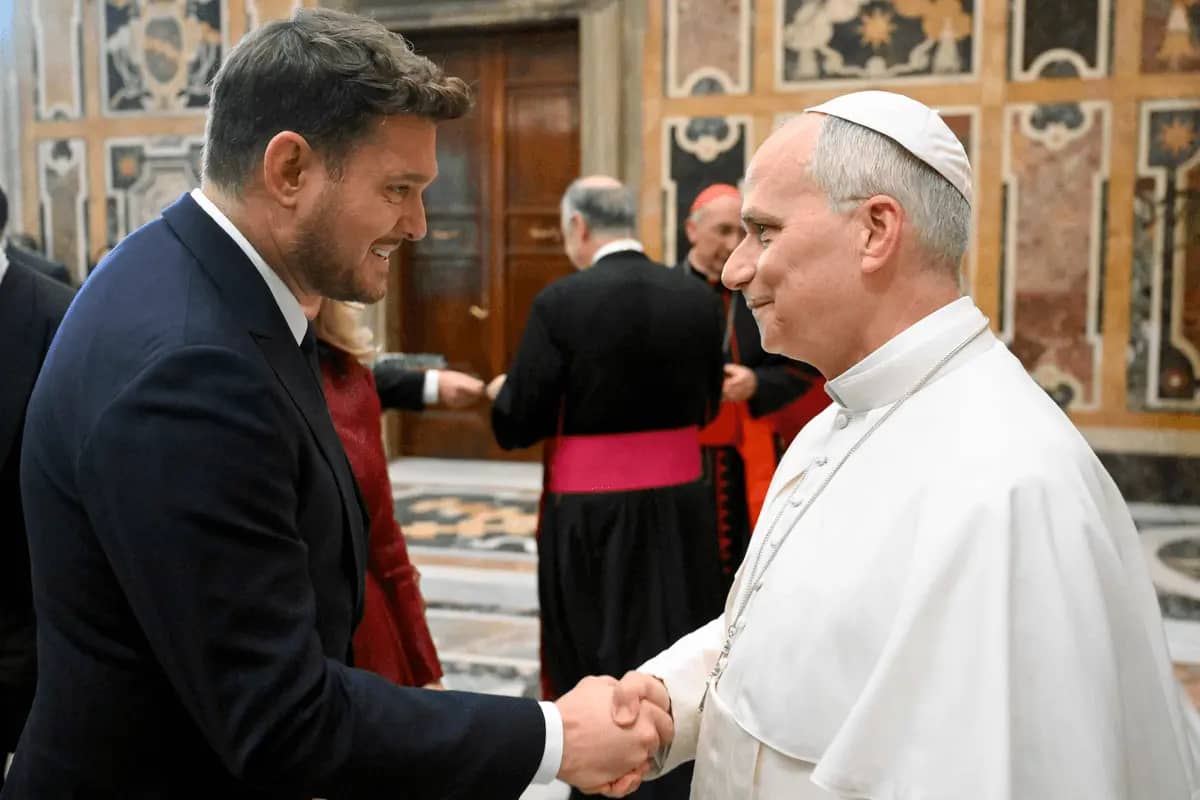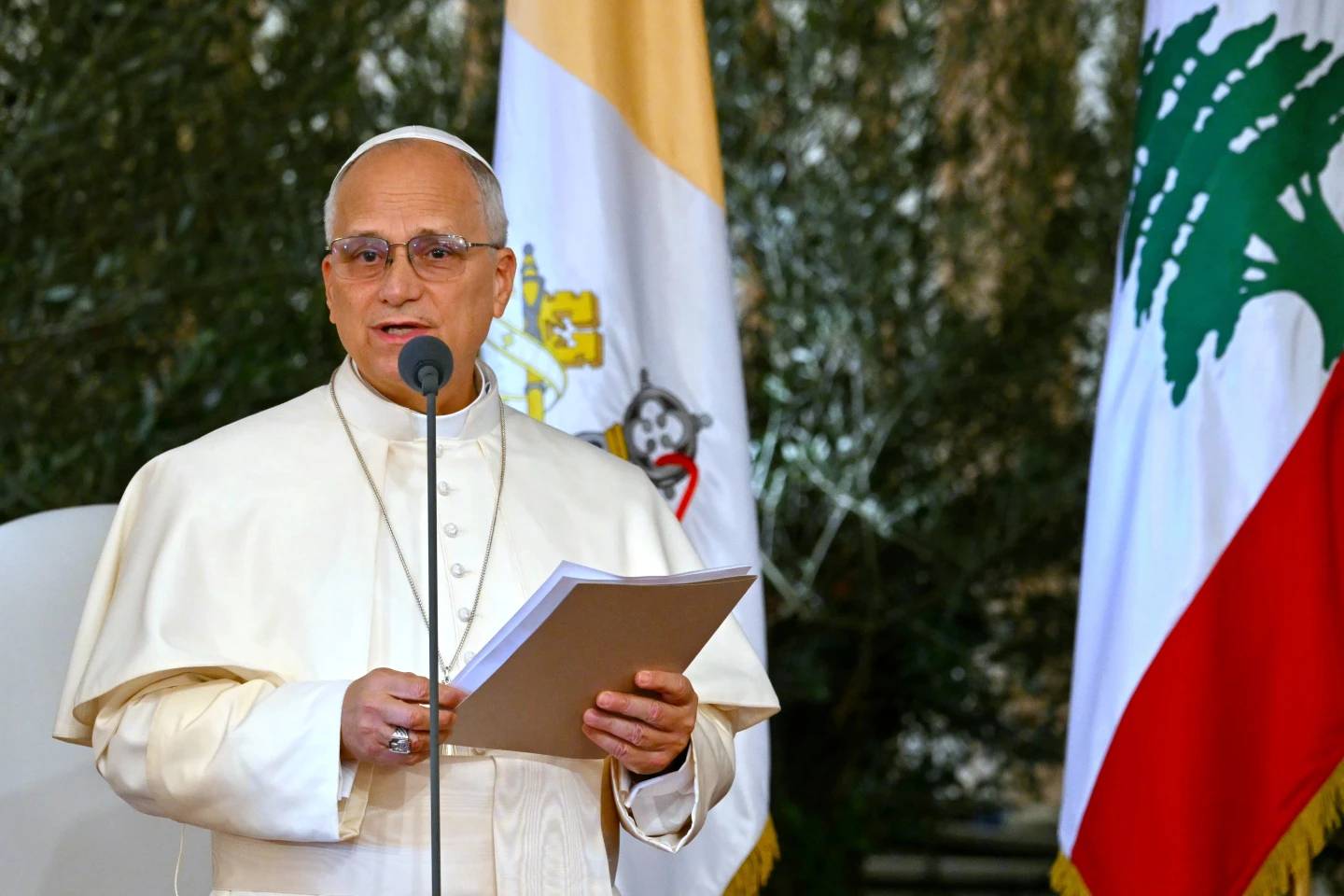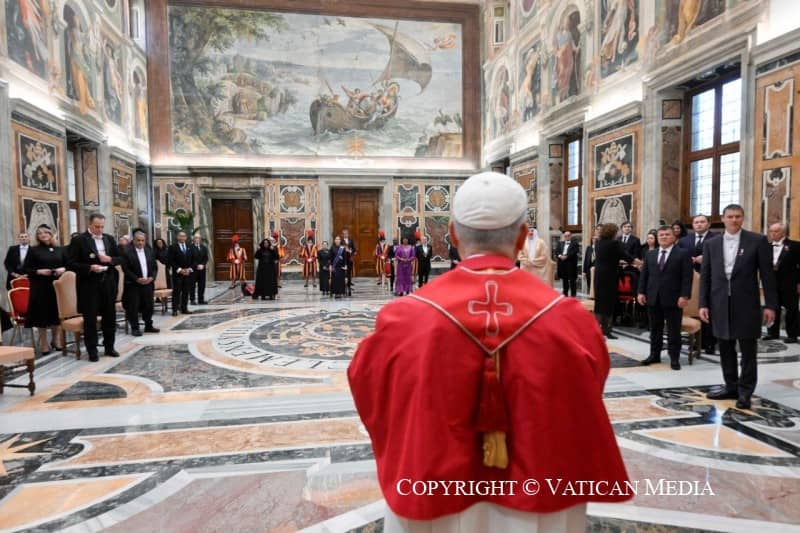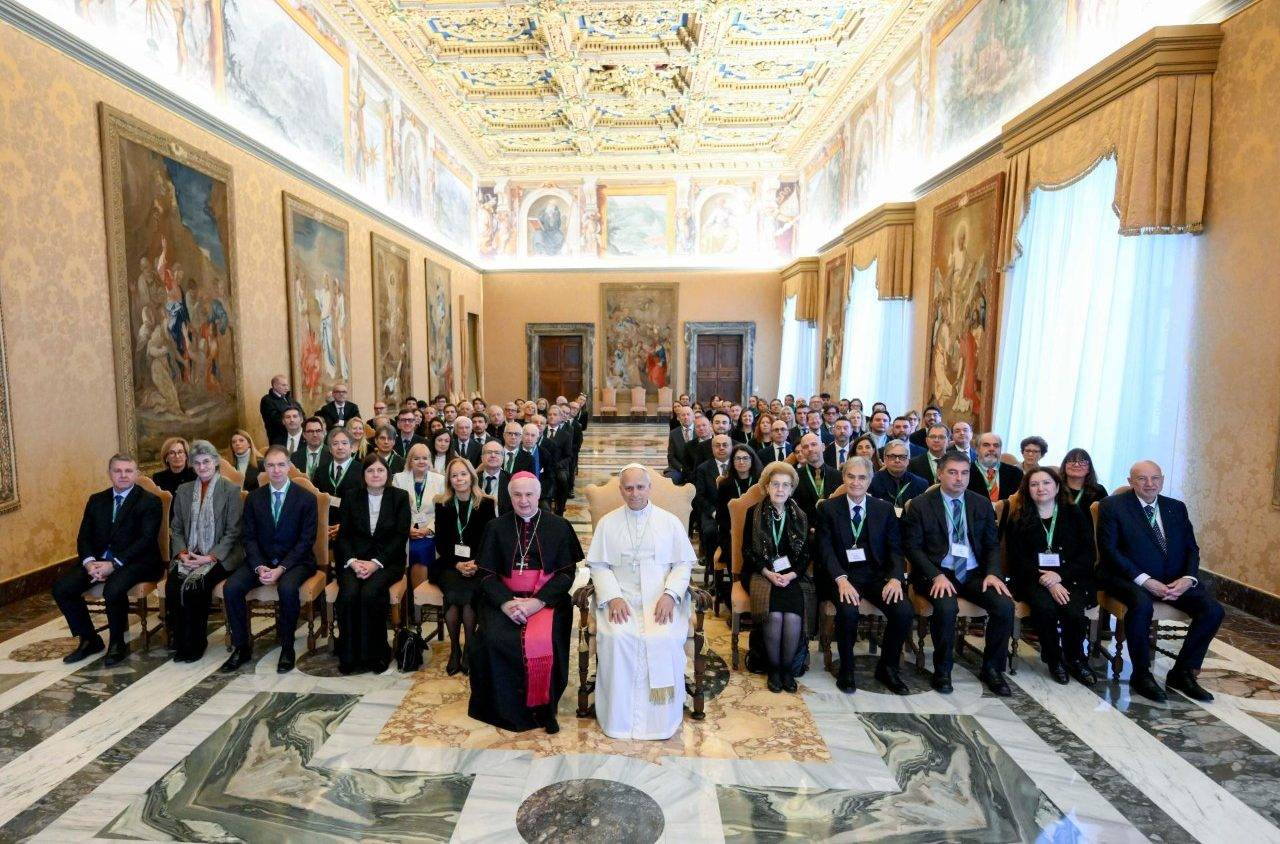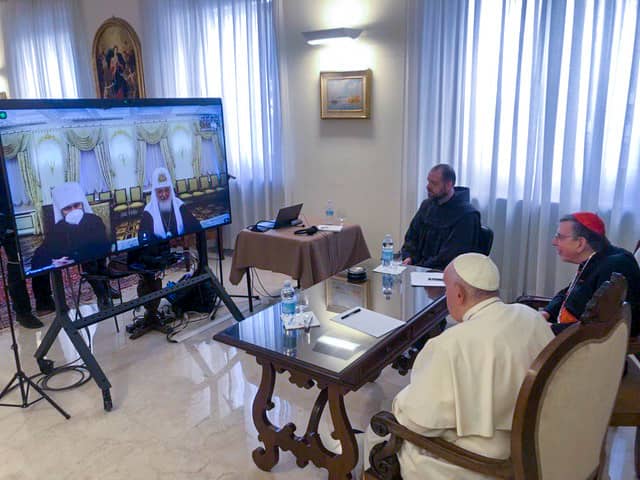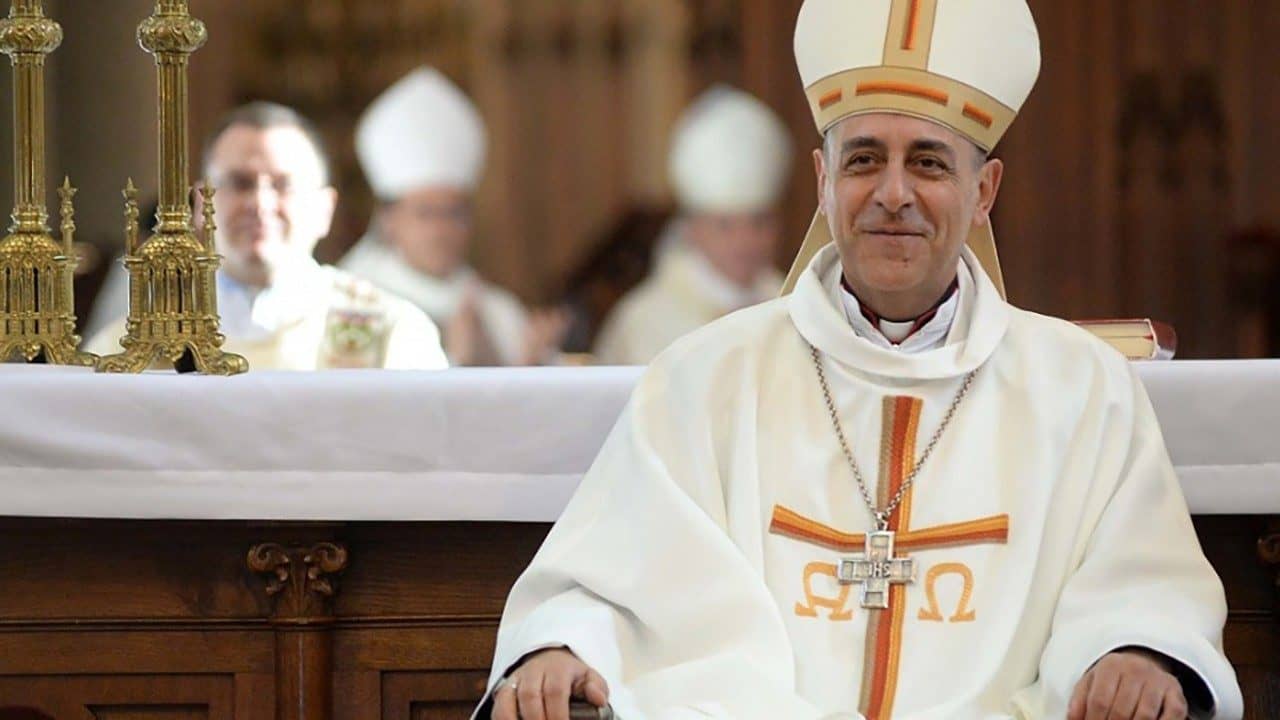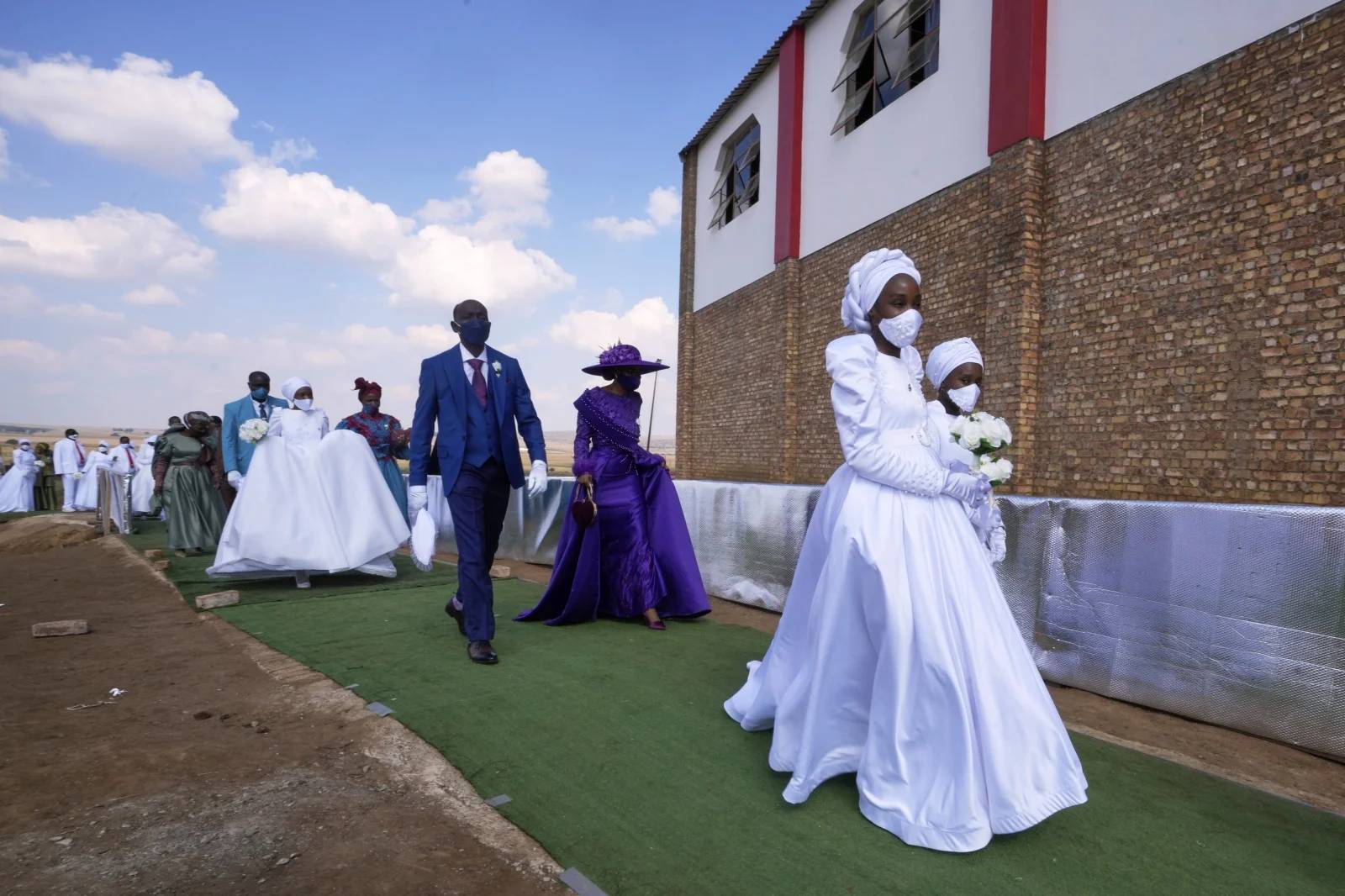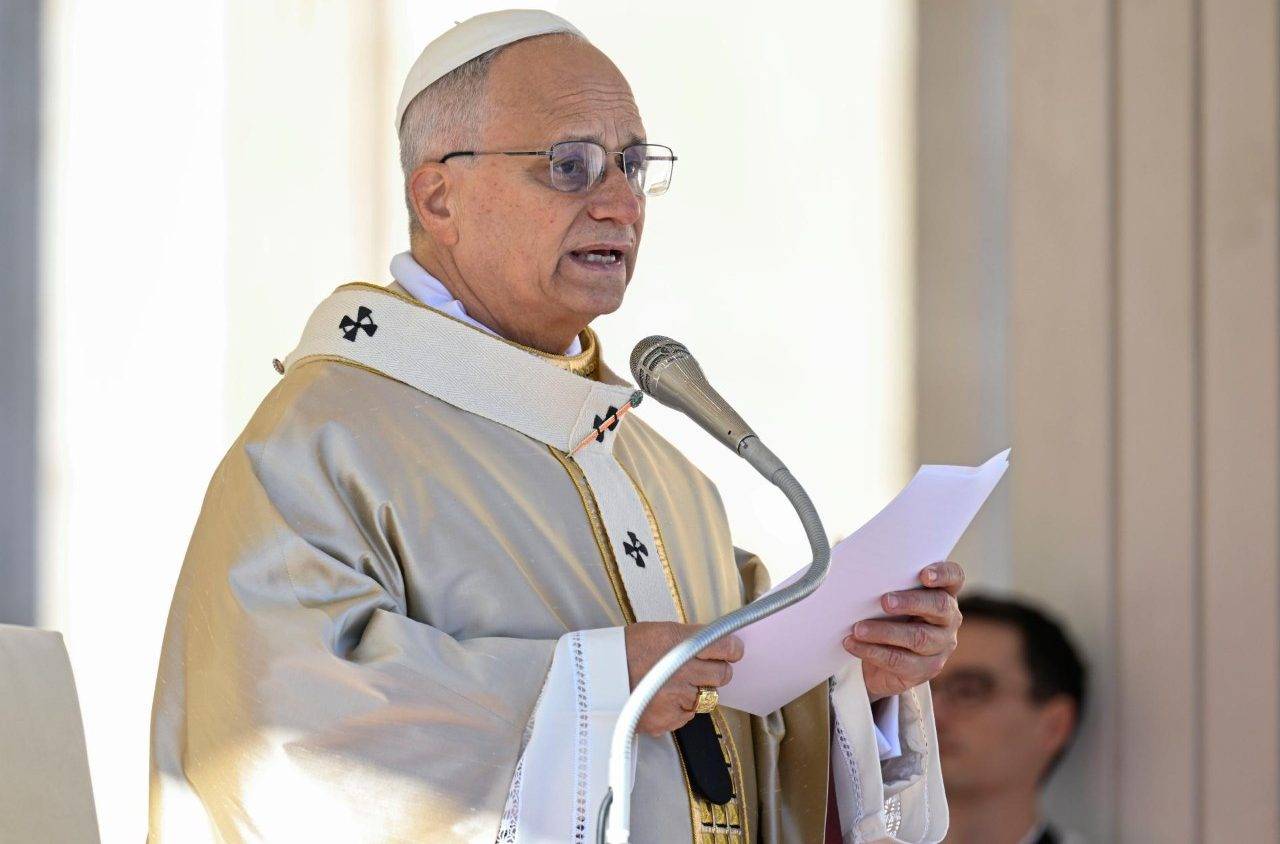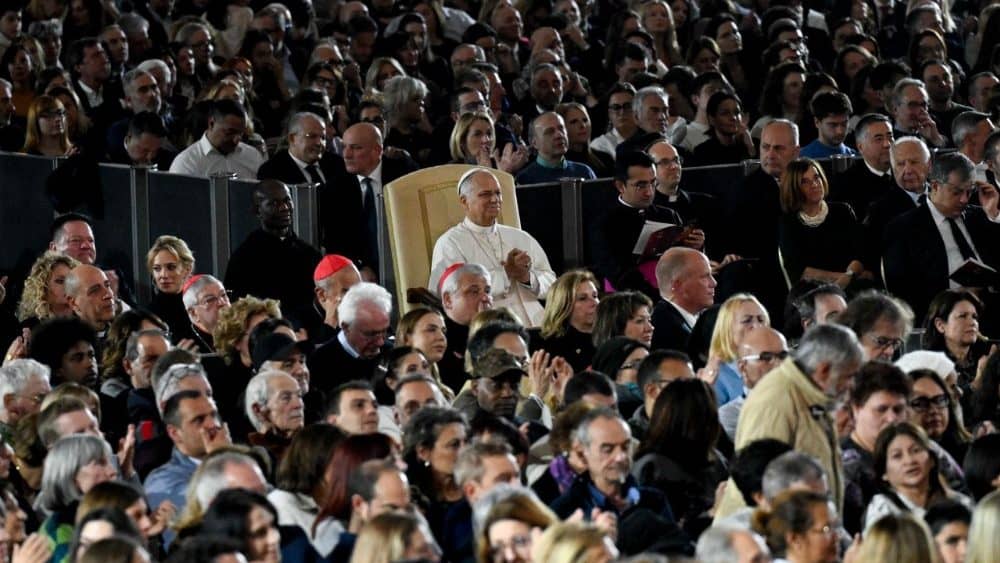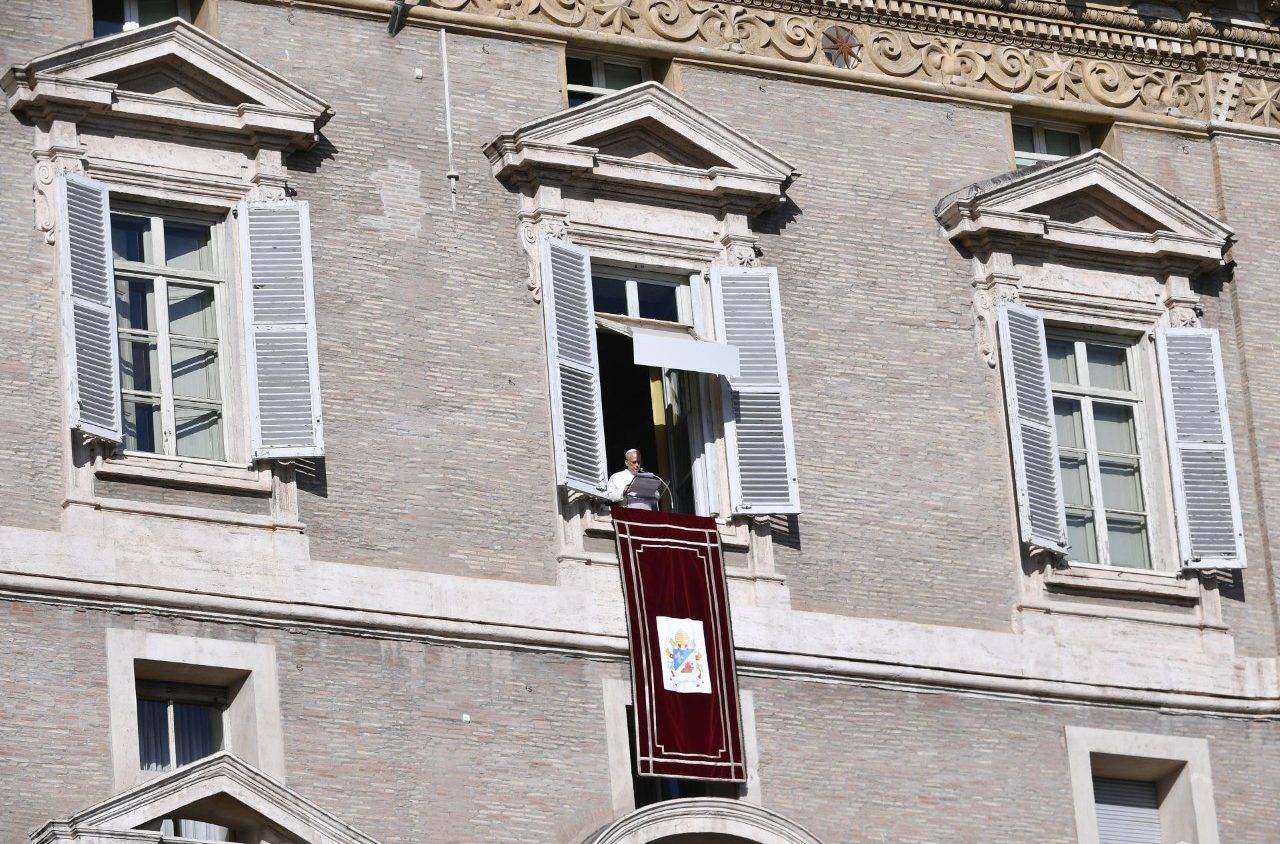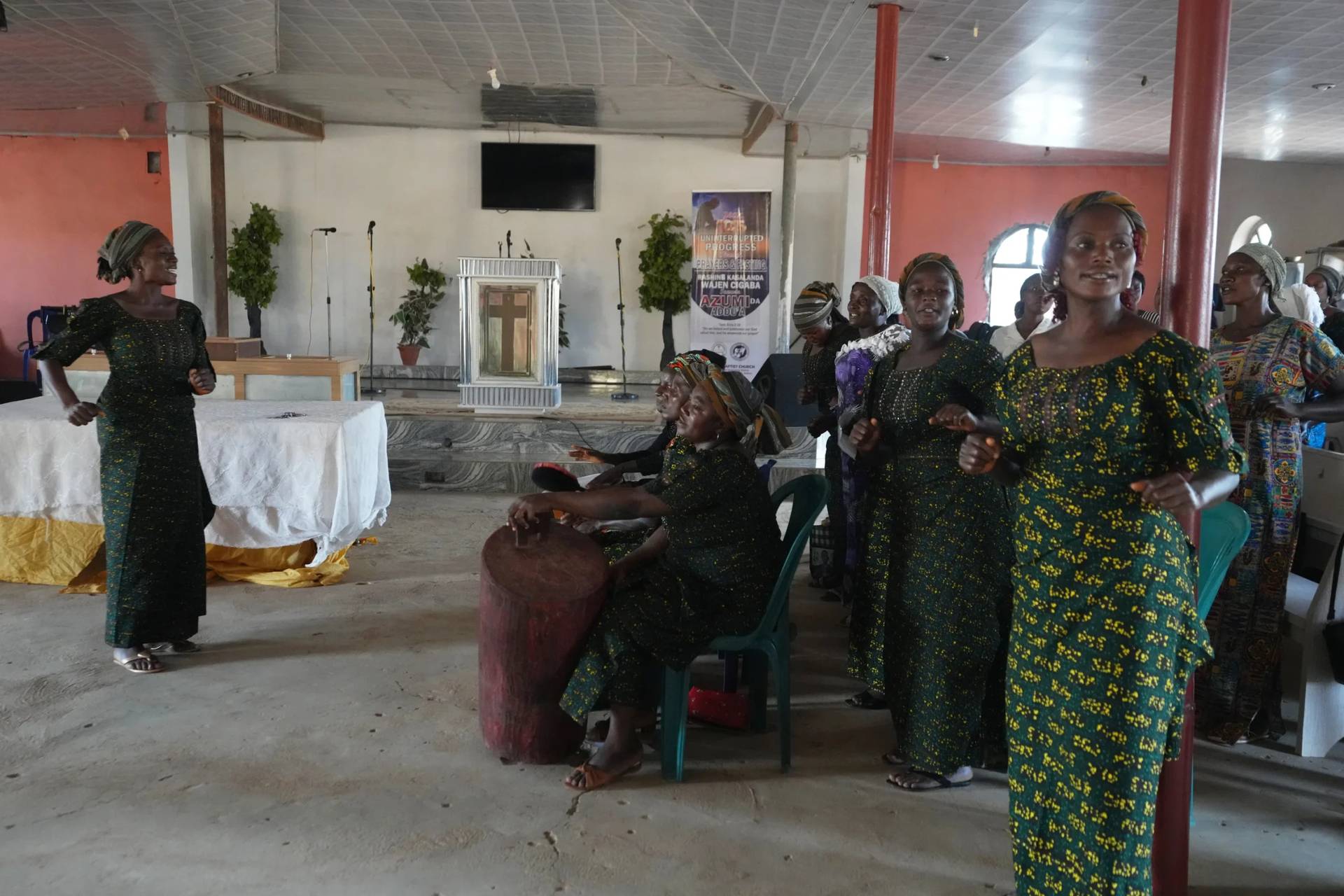ROME – Last night I attended the Rome pre-premiere of a brilliant new documentary of St. John Paul II directed by a friend of mine, Paulina Guzik, titled “I Like to See the Sun Rise.” More than any other film about John Paul I’ve ever seen, it captures the emotional register of the man, the way in which his passion and fascination with people drove every other aspect of his life and teaching.
Granted, I’m a bit of a softy, but I think I set a new land speed record for tears when the lights at Rome’s Dominican-run Angelicum University, where a young Karol Wojtyla studied, went dark and the film began to roll.
Guzik’s byline from Poland occasionally graces the Crux site, although I suspect that’ll become less frequent as her budding success as a filmmaker carries her to new horizons.
While there are many striking aspects of the film, one in particular hit home given the context in which the pre-premiere unfolded, which is shaped by the Oct. 6-27 Synod of Bishops on the Amazon. It came when a Polish Dominican interviewed by Guzik named Father Jarosław Kupczak was reflecting on the impact of the Second Vatican Council, which Wojtyla participated in as a young bishop, on the man who eventually became pope.
Though I didn’t take down the exact quote, the gist of Kupczak’s comment was that Vatican II was when Wojtyla learned to think in global, not just Polish, terms about the Catholic Church.
That resonated with me, because over the years I’ve often had the experience of talking with bishops who, at one point in their careers, were asked to take part in a Synod of Bishops in Rome. In my experience, they often come away with very different evaluations of the significance of the event itself – some believe it produced meaningful results, while others describe it as an expensive talk shop that accomplished virtually nothing other than mind-numbing boredom for three interminable weeks.
For all we know right now, that could well be the take-away on the current Amazon synod for many prelates.
Despite the high-profile debates over married priests, women deacons and the precise nature of what Francis means when he talks about an “integral ecology” – despite, for that matter, the theatrics surrounding the Pachamama, meaning the indigenous figurines of a naked pregnant woman whose presence in sacred venues drove some unnamed iconoclasts to steal them and toss them into the Tiber River – many bishops may feel at the end that the synod didn’t really achieve much that wasn’t either already in the cards, or never destined to happen.
However, here’s what every bishop I’ve ever spoken to who’s taken part in a synod would say, and I mean unanimously: The experience helped them think in a more global way about the vicissitudes of the Church.
The basic demographic reality of the Catholic Church in the 21st century is this: Of the 1.3 billion baptized Catholics in the world today, two-thirds of them live outside the West, a share which will rise to three-quarters by mid-century. The great cities of Europe as the cradle of Christendom is now an historical anachronism; one could much more cogently argue that Manila, or São Paulo, or Kinshasa, is the center of global Catholicism today.
Indeed, the greatest Catholic story of the 20th century wasn’t Pius XII, or Vatican II, or John Paul II, as important as those chapters of history undeniably were. It was the North/South shift, meaning the transition from Catholicism as a largely white, first world faith, as it had been at the time of the Council of Trent and as it still was in 1900, to a staggeringly global community with its center south of the equator.
What gatherings such as the Amazon synod do for the leadership class of the Catholic Church, by default if not design, is give them a chance to spend a month cheek-by-jowl with church leaders and activists from other parts of the world, hearing their stories and getting a sense of what it’s like to walk in their shoes. A German prelate can learn what it’s like to minister to a tiny flock in Dubai; an American bishop gets a sense of what it’s like to minister to Christians in Iraq, who found themselves on the business end of the U.S.-led invasion of 2003.
In all honesty, the very tedium of synods encourages a sense of solidarity among participants that favors this sort of exchange, as people tend to be desperate to find something of value to take away from the experience.
All this is especially important for Americans, I might add, since the Achille’s heel of American culture is the tendency to assume that our experiences are the world’s experiences, our priorities the world’s priorities, and that our no-brainer solutions to problems ought to apply equally to everyone, everywhere. The realization that none of this is so, however obvious it may seem at the peripheries, is often akin to the experience of Saul on the road to Damascus for people who hail from the center.
As we take stock of the Synod of Bishops for the Amazon, therefore, it may betoken a limited perspective to ask only what formal results it generates. One might also profitably reflect on the impact it’s having on the people who take part – and if there’s a potential Karol Wojtyla in the room, who one day may lead the Church with the global perspective he’s imbibing right now.
While pondering that possibility, I’d also recommend finding a way to catch “I Like to See the Sun Rise,” because it’s one of the best hours you’re likely to spend all year.
Follow John Allen on Twitter: @JohnLAllenJr
Crux is dedicated to smart, wired and independent reporting on the Vatican and worldwide Catholic Church. That kind of reporting doesn’t come cheap, and we need your support. You can help Crux by giving a small amount monthly, or with a onetime gift. Please remember, Crux is a for-profit organization, so contributions are not tax-deductible.






